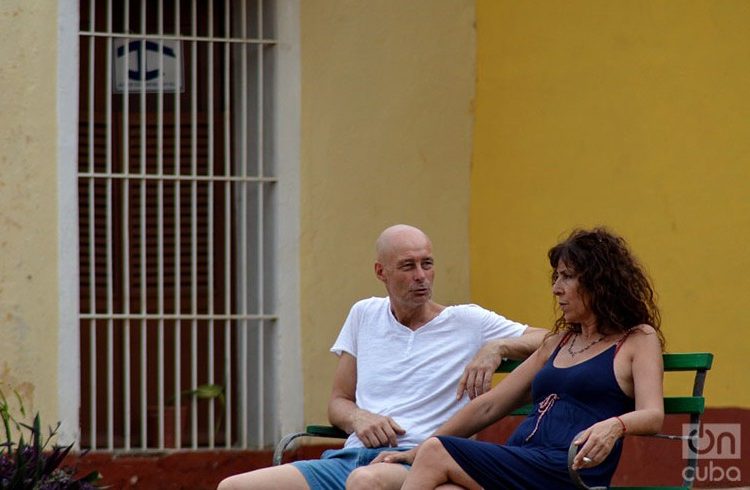Airbnb will expand the possibility to rent houses in Cuba to travelers from 191 countries as of April 2nd.
So far only American customers had been able to book places in Cuba through Airbnb, but following the authorization of the U.S. Treasury Department, the San Francisco-based startup will be able to give service to customers from 34,000 cities all over the world, who may be having a hard time booking hotels in Cuba these days.
Alejandro, a home owner in Havana who has been promoting his place in Airbnb for only a month is optimistic about this new announcement. He had tried similar services online until he discovered Airbnb, which only charges a 3% commission, which is a relatively low rate compared to the rates of other providers.
In addition to rates, Alejandro said to be very pleased with Airbnb’s customer service. “What I like about this company is that they don’t stop when the traveler makes a reservation, they also make sure that that customer gets safe to their destination,” he said.
He told OnCuba that last week, a few days before the Rolling Stones’ concert in Havana, he got a phone call from Airbnb from the United States asking if he had space for a customer whose booking had been cancelled in the last minute. That person was at the airport at that moment.
Although Alejandro didn’t have space at his house, he was able to find a room at some friend’s business. The young man not only promotes his own house on Airbnb, he also manages the online presence of other house owners. He doesn’t charge for creating and managing those houses profiles, he only gets a commission when the house in question gets a customer.
Private houses have quickly become a very good accommodation option for tourists in Cuba. According to a press release published by the Airbnb, there are currently 4,000 registered houses in 40 cities and towns in Cuba, 40% of which are in Havana.
Yanelis March has just registered her house -which she shares with her parents- in Airbnb. Listed as Hostal D’March, the place is close to the Art Factory, in Vedado. Yanelis is the only person in her family with internet access, so she will take care of managing the business online.
“I hope to get clients from all over the world. This is a platform widely known internationally and used by all kinds of travelers,” said Yanelis.
“I’ve been told that there are Airbnb staff in Cuba who deliver payments to house owners. It’s a payment method they have implemented for Cuba,” she added.
Airbnb has found a way to succeed in Cuba, even when the options for online payments are very limited. Payments are managed through VaCuba, a company that sends cash to the business owners.
In only a year, more than 13,000 American customers have stayed in private houses in Cuba. This could greatly contribute to the reestablishment of relations between the two peoples and improve understanding on both sides of the border.
“This network of houses is a clear example of the world we imagined when we launched Airbnb eight years ago,” said the company’s CEO Brian Chesky in a press release.










